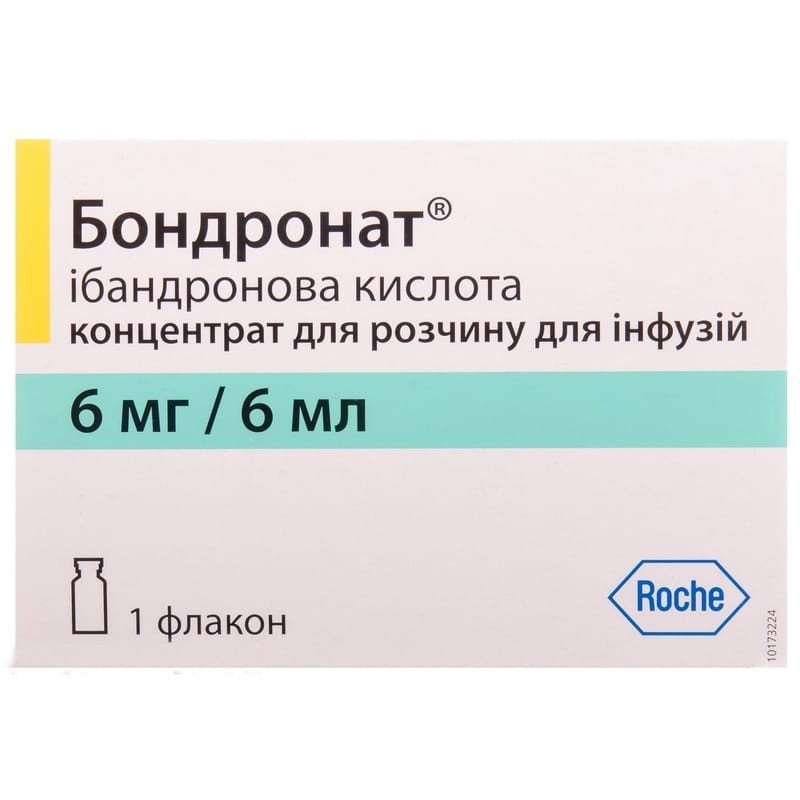



 Secure and encrypted payment processing
Secure and encrypted payment processing We ship to over 40 countries including the USA, UK, Europe, Australia and Japan
We ship to over 40 countries including the USA, UK, Europe, Australia and Japan Guaranteed refund or reship if you haven't received your order
Guaranteed refund or reship if you haven't received your orderBondronate infusion concentrate is indicated for:
Active substance: ibandronic acid;
1 vial (6 ml) contains - 6 mg of ibandronic acid in the form of sodium ibandronate, monohydrate - 6.750 mg
Excipients: sodium chloride, glacial acetic acid; sodium acetate, trihydrate; water for injections.
Hypersensitivity to ibandronic acid or to any other component of the drug.
Hypocalcemia.
Treatment with Bondronat should be prescribed only by a doctor who has experience in the treatment of malignant neoplasms.
Not applicable.
Not applicable.
Does not affect.
Due to the possible toxic effects on the liver and kidneys in preclinical studies when used in high doses, it is necessary to control the function of these organs. In case of development of hypocalcemia, it is necessary to carry out treatment with intravenous administration of calcium gluconate.
The most serious adverse reactions reported were anaphylactic reactions / shock, atypical hip fractures, osteonecrosis of the jaw bones and inflammation of the eye.
Treatment for hypercalcemia caused by neoplasms was most often associated with fever. Less commonly reported was a decrease in serum calcium levels below normal levels (hypocalcemia). In most cases, specific treatment was not required, and the symptoms disappeared after a few hours / days.
Metabolic interactions are not considered likely, since ibandronic acid does not inhibit the major hepatic P450 isoenzymes in humans and does not induce the P450 cytochrome system. Ibandronic acid is excreted by renal excretion and does not undergo biotransformation.
Use caution with Bondronate with aminoglycosides, since both substances can reduce serum calcium levels for a long time. Also, with the simultaneous use of these drugs, attention should be paid to hypomagnesemia.
Keep out of the reach of children. Store at a temperature not exceeding 30 ° C.
Ready (diluted) Bondronate infusion solutions are stable for 24 hours at a temperature of 2 ° - 8 ° C (in the refrigerator).
Shelf life is 5 years.